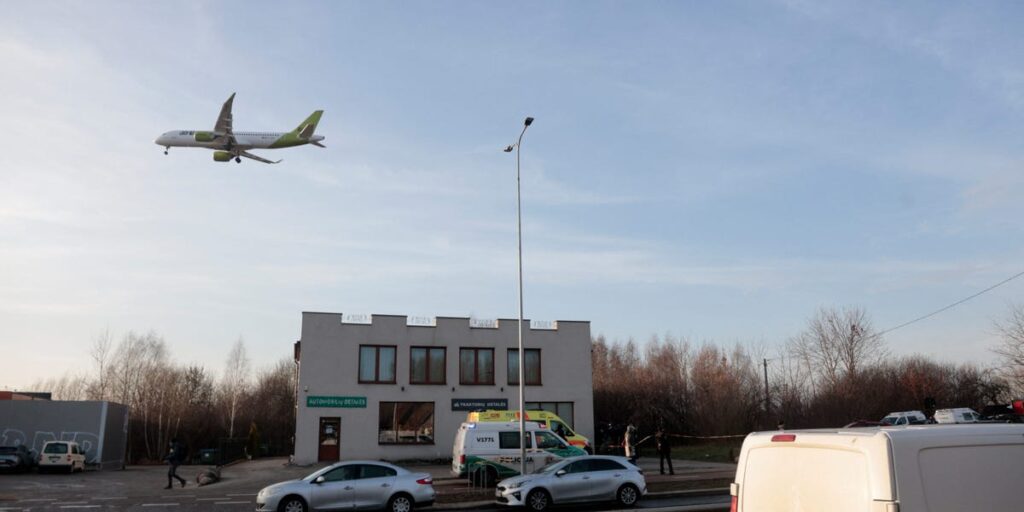Balloons flying in from Belarus have prompted officials in Lithuania to close local airports for a third night in a row.
Authorities said in a statement on Sunday evening that the airspace around Vilnius Airport had been temporarily suspended, affecting some 47 flights from 9:42 p.m. to 4:30 a.m. the next morning.
“According to initial information, the decision regarding airspace restrictions was made due to balloons flying in the direction of Vilnius Airport,” the statement said.
The incident is the latest in a string of reports this week from Lithuania, a NATO member, that helium-filled balloons have been entering its territory from the Belarusian border.
In a statement on Saturday, Lithuanian Prime Minister Inga Ruginiene said a “large group of smuggling meteorological balloons” had been launched from Belarus and into her country.
Another airport, in Kaunas, had to be closed as a result, she said.
The prime minister added that the balloons are likely used for smuggling cigarettes, but blamed the Russia-aligned leader of Belarus, Alexander Lukashenko, for allowing them to “run wild.”
In a separate statement on Sunday, Rugiene said that Lithuania was temporarily closing its borders with Belarus as its security council meets on Monday to discuss next steps.
Lithuania has been dealing with balloons from Belarus for some time. In September 2024, border authorities said 250 balloons had crossed over in a single month.
However, the country has been raising the alarm more frequently over such incidents over the last year, as the Baltic states report repeated airspace violations from Russia, which counts Belarus among its closest allies.
Lithuanian authorities said this week’s first balloons started showing up days before and had already prompted an earlier airport closure. On Wednesday, local officials issued a statement saying that they detected “several hundred markers” in a single night that could have been smuggling balloons.
These are often equipped with GPS trackers and SIM cards that allow their cargo to be tracked, the statement said.
“This year, more than 100 people have been arrested for air smuggling, 20 of whom have already been convicted,” it added.
The statement also called on tech companies and defense contractors to pitch solutions for tracking and destroying such balloons.
More broadly, European NATO has been on edge after a series of drone incursions over Poland in September, many of which were said to involve Russian Gerberas flying through Belarus.
Other NATO allies, such as Denmark, have reported drone incursions over their airports in the weeks since.
Balloon incursions have happened elsewhere, too. In the summer of 2024, South Korea accused North Korea of floating over hundreds of trash-filled balloons, spreading garbage across the greater Seoul region as a gray warfare tactic.
The press team for Lukashenko’s office did not respond to a request for comment sent outside local business hours by Business Insider.
Read the full article here


